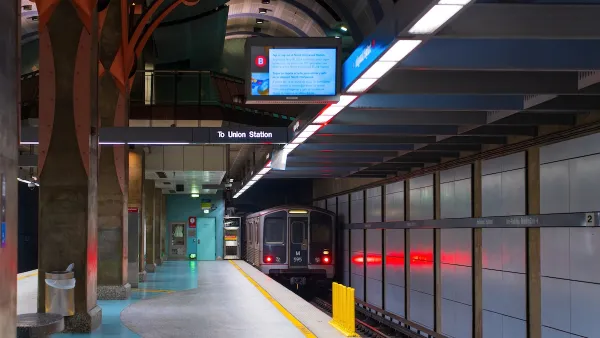For the final topic in its blog series Lab Notes I, the BMW Guggenheim Lab has enlisted June Williamson to address repurposing buildings and urban infrastructure for more productive uses.
Whereas much attention has been paid (by Williamson herself) to retrofitting defunct suburban buildings such as vacant malls, strip centers, big-box stores, office parks, and garden apartment complexes along a "live, work, and play" redevelopment model, Williamson proposes going further to investigate "other uses-more ecologically, socially, and economically productive uses-that might be adapted to the emergent suburban-retrofitting paradigm."
Working with landscape architect Anne Vaterlaus, Williamson tested this approach on a 160-acre parcel in the east Los Angeles "ethnoburb" of Pico Rivera. In developing design schemes for a failing "towne center", Williamson and her partner, "considered how this site might be retrofitted once again, with more resiliency, by introducing a retooled model based on production, designed around training, employing, housing, and feeding a local labor force in need of skills and opportunities."
The resulting design concepts, focused around jobs, affordable housing, and food production, are intriguing.
FULL STORY: Retrofitting for Fecundity

Maui's Vacation Rental Debate Turns Ugly
Verbal attacks, misinformation campaigns and fistfights plague a high-stakes debate to convert thousands of vacation rentals into long-term housing.

Planetizen Federal Action Tracker
A weekly monitor of how Trump’s orders and actions are impacting planners and planning in America.

In Urban Planning, AI Prompting Could be the New Design Thinking
Creativity has long been key to great urban design. What if we see AI as our new creative partner?

King County Supportive Housing Program Offers Hope for Unhoused Residents
The county is taking a ‘Housing First’ approach that prioritizes getting people into housing, then offering wraparound supportive services.

Researchers Use AI to Get Clearer Picture of US Housing
Analysts are using artificial intelligence to supercharge their research by allowing them to comb through data faster. Though these AI tools can be error prone, they save time and housing researchers are optimistic about the future.

Making Shared Micromobility More Inclusive
Cities and shared mobility system operators can do more to include people with disabilities in planning and operations, per a new report.
Urban Design for Planners 1: Software Tools
This six-course series explores essential urban design concepts using open source software and equips planners with the tools they need to participate fully in the urban design process.
Planning for Universal Design
Learn the tools for implementing Universal Design in planning regulations.
planning NEXT
Appalachian Highlands Housing Partners
Mpact (founded as Rail~Volution)
City of Camden Redevelopment Agency
City of Astoria
City of Portland
City of Laramie





























